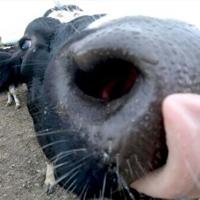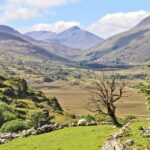New Zealand’s center-right government announced on Tuesday that it will be eliminating a scheme that aimed to price greenhouse gas emissions from livestock, effectively putting an end to the proposed burp tax.
New legislation is set to be introduced to parliament this month in order to exclude the agriculture sector from the new emissions pricing plan.
“The government is dedicated to meeting our climate change responsibilities without jeopardizing Kiwi farms,” stated Agriculture Minister Todd McClay.
“It is not logical to move jobs and production overseas, while countries with lower carbon efficiency are the ones producing the food that the world requires.”
The New Zealand economy heavily relies on agriculture, with approximately 10 million cattle and 25 million sheep grazing the nation’s pastures.
Almost half of New Zealand’s emissions are attributed to agriculture, particularly cattle.
Cattle release methane gas through burps and flatulence, while livestock urine leaks nitrous oxide into the atmosphere.
The previous center-left Labour government had specifically targeted livestock in its efforts towards achieving net-zero greenhouse gas emissions by 2050.
However, the plan to tax livestock emissions, which was announced by former prime minister Jacinda Ardern in 2022, led to widespread protests by farmers who were concerned about potential profit losses.
The new center-right government, which took office late last year, has decided to exclude agriculture, animal processors, and fertiliser companies from the emissions pricing scheme that was supposed to commence in 2025.
The agriculture minister expressed the government’s aim to assist farmers in reducing emissions through technological advancements without compromising production or exports.
A new “pastoral group” will be established to address biogenic methane emissions within the sector.
Farmers have welcomed this decision.
Conversely, environmental groups have criticized the government, particularly after it announced plans to reverse a five-year ban on new oil and gas exploration over the weekend.
“By allowing the most polluting industries, industrial dairy and new oil and gas exploration, to disregard our atmosphere, the government has essentially worsened the climate crisis,” remarked Greens co-leader Chloe Swarbrick.
Greenpeace accused the government of “declaring war on nature” by prioritizing polluting industries.
“In the past few days, the coalition government has clearly indicated that the industries with the highest emissions, industrial dairy, and new oil and gas exploration, are exempt from environmental regulations, effectively turning our atmosphere into an open sewer,” criticized Greenpeace spokesperson Niamh O’Flynn.
In addition to these issues, thousands of individuals protested in major New Zealand cities over the weekend against the government’s plans to allow significant infrastructure projects to bypass certain environmental regulations.
ryj/djw/mtp





